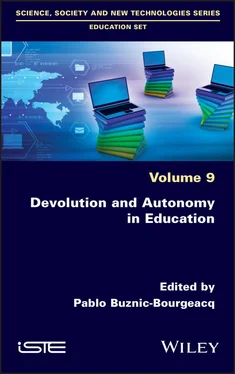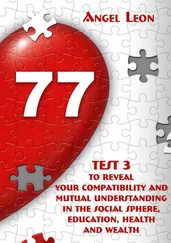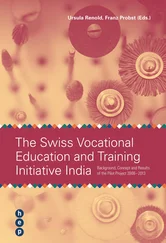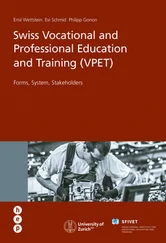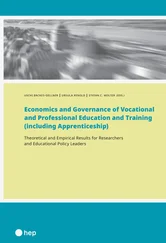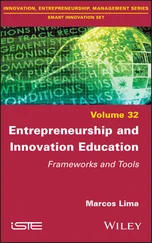5 Foreword
6 Introduction
7 Begin Reading
8 List of Authors
9 Index
1 v
2 iii
3 iv
4 x
5 xi
6 xii
7 xiii
8 xiv
9 xv
10 xvi
11 xvii
12 xviii
13 xix
14 xx
15 xxi
16 xxii
17 xxiii
18 xxiv
19 xxv
20 xxvii
21 xxviii
22 xxix
23 xxx
24 xxxi
25 xxxii
26 xxxiii
27 xxxiv
28 xxxv
29 xxxvi
30 xxxvii
31 xxxviii
32 xxxix
33 xl
34 xli
35 xlii
36 xliii
37 xliv
38 1
39 3
40 4
41 5
42 6
43 7
44 8
45 9
46 10
47 11
48 12
49 13
50 14
51 15
52 16
53 17
54 18
55 19
56 20
57 21
58 22
59 23
60 24
61 25
62 26
63 27
64 28
65 29
66 30
67 31
68 32
69 33
70 34
71 35
72 36
73 37
74 38
75 39
76 40
77 41
78 42
79 43
80 44
81 45
82 46
83 47
84 48
85 49
86 50
87 51
88 53
89 54
90 55
91 56
92 57
93 58
94 59
95 60
96 61
97 62
98 63
99 64
100 65
101 66
102 67
103 68
104 69
105 70
106 71
107 72
108 73
109 74
110 75
111 76
112 77
113 78
114 79
115 80
116 81
117 82
118 83
119 84
120 85
121 86
122 87
123 88
124 89
125 90
126 91
127 92
128 93
129 94
130 95
131 96
132 97
133 98
134 99
135 100
136 101
137 102
138 103
139 104
140 105
141 106
142 107
143 108
144 109
145 110
146 111
147 112
148 113
149 114
150 115
151 116
152 117
153 118
154 119
155 120
156 121
157 122
158 123
159 124
160 125
161 126
162 127
163 128
164 129
165 130
166 131
167 132
168 133
169 134
170 135
171 136
172 137
173 138
174 139
175 140
176 141
177 142
178 143
179 144
180 145
181 146
182 147
183 148
184 149
185 150
186 151
187 152
188 153
189 154
190 155
191 156
192 157
193 158
194 159
195 160
196 161
197 162
198 163
199 164
200 165
201 166
202 167
203 169
204 170
205 171
206 172
207 173
208 174
209 175
210 176
211 177
212 178
213 179
214 180
215 181
216 182
217 183
218 184
219 185
220 187
221 188
222 189
223 190
224 191
225 192
226 193
227 194
228 195
229 196
230 197
231 198
232 199
233 200
234 201
235 202
236 203
237 204
238 205
239 205
240 207
Education Set
coordinated by Angela Barthes and Anne-Laure Le Guern
Volume 9
Devolution and Autonomy in Education
Edited by
Pablo Buznic-Bourgeacq

First published 2021 in Great Britain and the United States by ISTE Ltd and John Wiley & Sons, Inc.
Apart from any fair dealing for the purposes of research or private study, or criticism or review, as permitted under the Copyright, Designs and Patents Act 1988, this publication may only be reproduced, stored or transmitted, in any form or by any means, with the prior permission in writing of the publishers, or in the case of reprographic reproduction in accordance with the terms and licenses issued by the CLA. Enquiries concerning reproduction outside these terms should be sent to the publishers at the undermentioned address:
ISTE Ltd
27-37 St George’s Road
London SW19 4EU
UK
www.iste.co.uk
John Wiley & Sons, Inc.
111 River Street
Hoboken, NJ 07030
USA
www.wiley.com
© ISTE Ltd 2021
The rights of Pablo Buznic-Bourgeacq to be identified as the author of this work have been asserted by him in accordance with the Copyright, Designs and Patents Act 1988.
Library of Congress Control Number: 2021936092
British Library Cataloguing-in-Publication
Data A CIP record for this book is available from the British Library
ISBN 978-1-78630-698-2
Foreword
The Devolution Process within the Framework of the Theory of Didactical Situations
The concept of devolution, introduced by Brousseau (1982), is at the heart of the theory of didactical situations in mathematics, which itself has called for some research observations in didactics of mathematics, particularly in France, since the 1970s. I will then come back to the concept of “devolution”, which leads us to introduce a fundamental distinction between situational knowledge and institutional knowledge and to characterize the process of devolution. We will then be able to question the roles of the teacher, as well as of the student before concluding on the implications for the disciplines.
Some observations on the didactics of mathematics and theory of didactical situations
The term “didactics” refers to many points of view that depend on the history of research communities in different disciplinary didactics. In didactics of mathematics, a broad anthropological point of view prevails (Sarrazy 2005), which is reflected, for example, in the following definitions:
[…] the didactics of mathematics [is] the science of studying and helping to study (questions of) mathematics (Bosch and Chevallard 1999, p. 79).
It is the science of the specific conditions regarding the diffusion of mathematical knowledge necessary for human occupations (broad sense) (Brousseau 2003, p. 2).
Both of these definitions consider the didactics of mathematics a “normal” science (Kuhn 1970) that includes both foundational and applied research (International Council for Science 2004). Its object of study is specified, and it specifically concerns mathematics; however nothing refers to school or teaching, which represent institutional and historical choices concerning only part of the diffusion of mathematical knowledge or the study of it. In the continuation of the previous quotation, Brousseau, when he specifies the “restricted meaning”, indicates a “teaching” institution but assigns to it a meaning that is not necessarily that conferred on it by contemporary usage (employee in national education).
The didactics of mathematics deals (in a restricted sense) with the conditions where an institution considered a “teaching” institution attempts (mandated if necessary by another institution) to modify the knowledge of another “taught” institution when the latter is not able to do so autonomously and does not necessarily feel the need to do so. A didactic project is a social project to enable a subject or an institution to appropriate knowledge that has been or is in the process of being created. Teaching includes all the actions that seek to achieve this didactic project (Brousseau 2003, p. 2).
In this quotation, a very important point that will be developed is that the “taught institution” does not necessarily feel the need to change its knowledge and is not able to do so autonomously. As I am only interested here in one teaching institution, the school, I will speak of students and teachers.
Читать дальше
